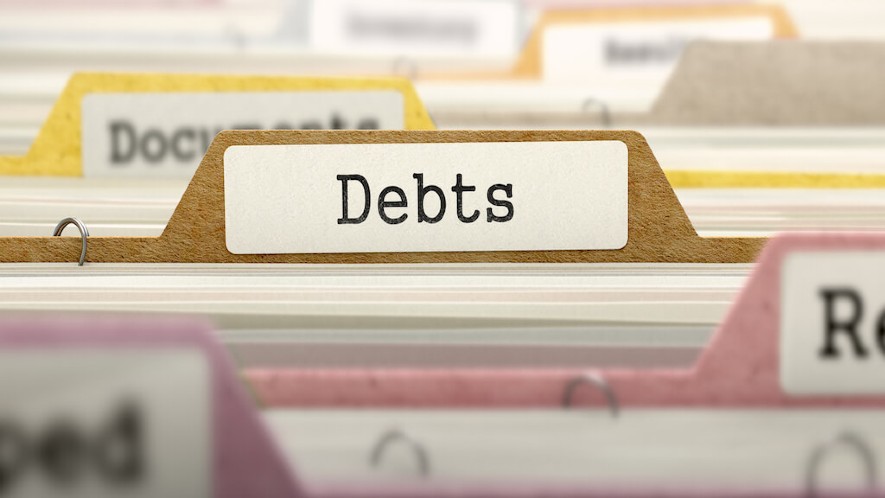In Singapore, debt collection is shroud in fear. When people think of debt collectors, images of a pig’s head and defamatory words printed on corridors run through their minds. However, does it have to get this threatening and spooky? All about legal debt collector in Singapore.
While legal debt collection firms might not employ the nasty strategies used by unlicensed lenders or loan sharks to recover their money, we must indicate that some of their actions get pretty close to harassment. So, if you are late with debts and worry that a debt collector might be enlisted, here are some essential things you need to know.

Who are Debt Collectors?
When a company lends money to clients, such as personal loans and renovation loans, the expectation is that the debtor will pay. This is why lenders provide a comprehensive agreement detailing all the particulars on the loan repayment. But what do they do when a borrower does not meet his obligation of paying the borrowed amount?
The primary implication of defaulting loans is that lenders incur huge losses. Therefore, they enlist the services of debt collectors to chase the debtors and ensure they pay the owed cash. They are there to serve the interest of the lender and can go to great lengths to get the money paid back.
What are Debt Collectors Allowed to Do?
Unlike illegitimate debt collectors, the legit ones will not come around and leave scaring pig heads on your door because that is illegal. However, many of them still employ scary strategies that include hanging banners telling the whole country and world that you have refused to pay.
In Singapore, a Code of Ethics has been set by the Credit Collection Association, but it lacks a lot of authority to deal with members. This is why you should try as much as possible to avoid defaulting repaying your loan in Singapore.
Illegal Actions by Debt Collectors
In Singapore, there are no specific laws for guiding debt collection agencies. Despite this, there are a number of actions that would be regarded as illegal. Here are some of them:
Unlawful assembly
If a debt collection agency hires a mob and send it to your house or work, call the police, and they will be charged with unlawful assembly. If you demonstrate that a group of more than five people had the objective of vandalising or taking your property away, they will also be charged in a court of law.
Violence and Intimidation
Many debt collectors usually use vulgar language and even bang doors to intimidate debtors, but this is against the law. Any person, who uses insulting words or behaviour with the aim of causing harm, causes an offence and can be charged. So, when a debtor threatens to beat you up, simply call the police.
Vandalism
One of the serious offences that a person can commit in Singapore is vandalism. So, if the debt collection agencies come to your home and spray paint on the property, fix posters, put up banners, or damage any item belonging to you, they can be accused of vandalism. If proven guilty, the collection agency can be fined up to 2,000 or jailed for three years.
Harassment
Causing distress or alarm through abusive, threatening, or insulting words can be considered harassment. If the actions of the debt collection agency make you believe that violence is about to be used against you, call the police.
Damaging property or taking it away
When trying to get you to pay debts, many are the collection agencies that make you believe they have the right to tow away the car or television. However, this is not true. For any person, including debt collection agencies, to take your property, he/she must have a writ of seizure or court order. Therefore, most of the agencies who indicate they can take away your asset are only instilling fear, and you should call the police if they make good their threats.

Legal Debt Collector in Singapore: How Do You Deal with Debt Collection Agencies?
In Singapore, we have bad news for debtors – you can run but it’s impossible to hide. Sure, it might be possible to dodge the debt collectors, but it will get you as a surprise when you wake up to get the family car towed away by the collectors. Worse still, they might even initiate bankruptcy cases against you. So, here are some methods you can use to deal with the collection agencies:
Do Not Let them Do Anything Illegal
As we have highlighted earlier, some debt collection agencies often turn to intimidation and the use of abusive language. Well, do not let them step on your toes with anything illegal. If they are abusive, threatening to beat you up, or taking personal property, make sure to call the police.
Negotiate with the Agency
When a lender in Singapore contracts a collection agency, it is mandated to act as an intermediary. Therefore, you might want to consider negotiating with them for a new repayment plan. In most instances, they will be willing to sit down with you and agree on a schedule to clear the debt under consideration.
This can be a good way to avoid their harassment or getting the case moved to the next level, especially the courts. All about legal debt collector in Singapore.
Tips to Help You Avoid Defaulting Loans in Singapore
There are a number of ways that you can use to ensure you stick to the agreed loan repayment schedule. The most important one is ensuring you borrow when it is absolutely necessary. For example, if you want to undertake some renovations and have some savings, consider only borrowing the deficit. This means that you borrow less, and repaying it will be pretty easy. Here are other tips to help you repay the loan on time:
Budget appropriately: Before you can make a loan application, think about the repayment by budgeting for it. This implies that loan repayment will not come as a surprise monthly expense.
Rethink the loan payment schedule: The best strategy when dealing with loans is to get them cleared as fast as possible. However, you might also consider a longer-term so that the monthly payments remain low and affordable. Note that a longer loan term ends up being more expensive!
Cut down on personal expenditure: To be able to clear that loan faster, take a closer look at some of the items on your budget and implement austerity measures. For example, you might opt to ride to work for two days every week instead of driving and cut down holidays from four to two. Then, the cash you save is directed to repaying the loan.
Automate the loan repayment: If the problem is coming about because of your busy schedule that is making it hard to remember remitting the payment, consider asking your bank to deduct and remit monthly payment on your behalf.
Go for loan consolidation: If you have multiple debts, especially high-interest loans, things can easily get out of hand. Defaulting on multiple loans is likely to attract multiple credit recovery agencies, making your life very challenging. So, consider consolidating these loans so that you are left with a single, low-interest loan to deal with.


